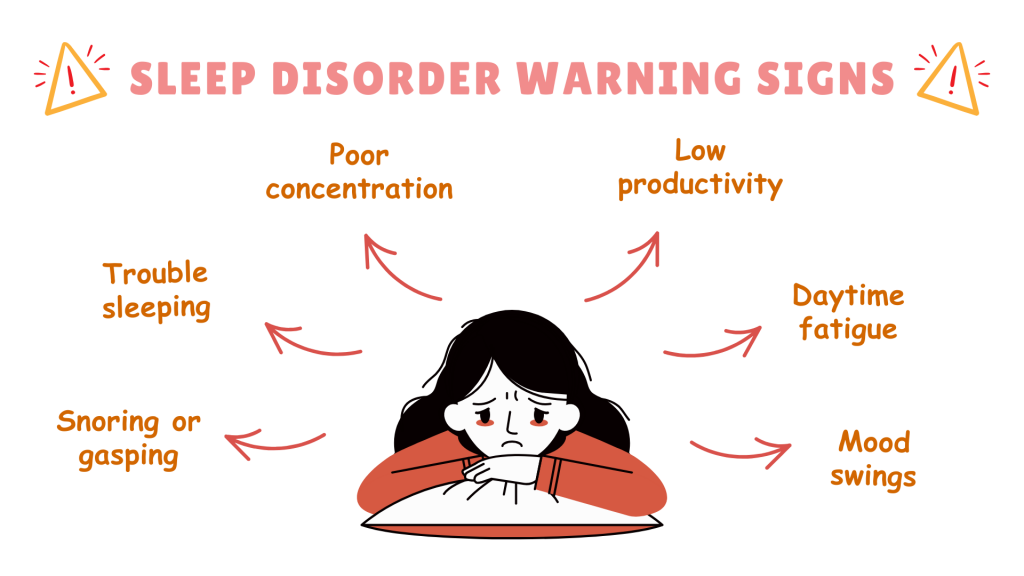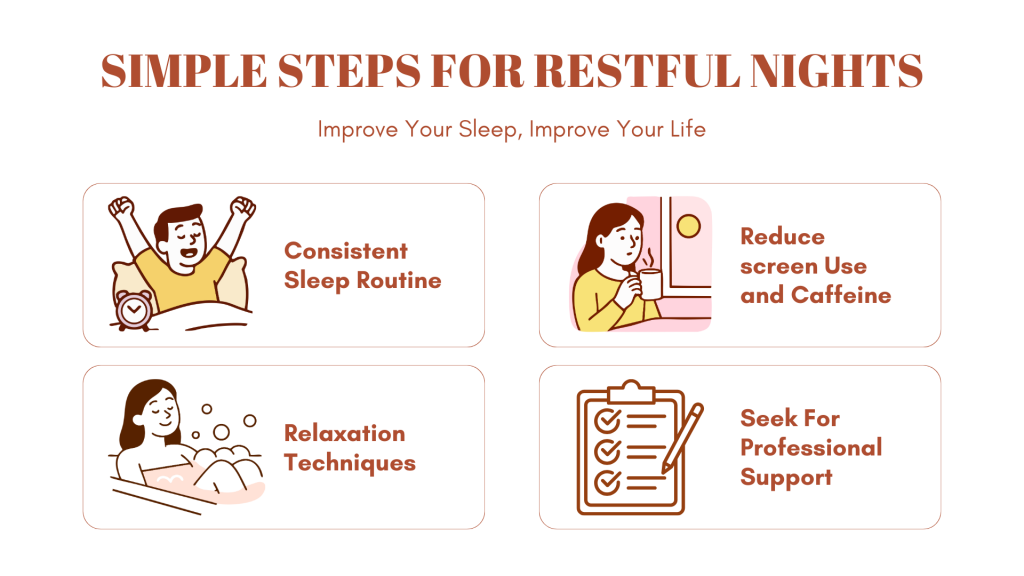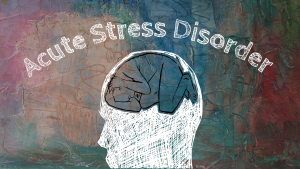13-9, 2 Rio Tower, Persiaran Rio, Bandar Puteri, 47100 Puchong, Selangor, Malaysia.

How Sleep Disorders Quietly Harm Your Health – And What You Can Do About It
- On
- InUncategorized
We often think of sleep as downtime — a quiet pause at the end of a busy day. But in reality, sleep is one of the body’s key healing tools. While we rest, our body works hard: repairing tissues, consolidating memories, balancing emotions, and strengthening the immune system. In short, sleep is not a luxury — it’s a necessity for both mental and physical recovery.
Healthy sleep cycles are essential for emotional balance, heart health, and clear thinking. Unfortunately, when these cycles are disrupted by conditions such as insomnia or sleep apnea, the effects often creep in silently. Many people only notice their tired mornings but overlook the deeper consequences. Sleep disorders affect many aspects of physical and mental health more than most people realise. They don’t just make you groggy — they can quietly undermine your wellbeing over time. That’s why learning to recognise the symptoms of sleep disorders and exploring management strategies is vital for maintaining a balanced, healthy life.
What Are Sleep Disorders? A Quick Overview
A sleep disorder is more than just a restless night or occasional insomnia. It’s a medical condition that consistently interferes with your ability to get quality rest. Some of the most common include:
- Insomnia: Trouble falling or staying asleep.
- Sleep Apnea: Breathing pauses occur during sleep, often accompanied by loud snoring or gasping.
- Restless Leg Syndrome (RLS): Uncomfortable leg sensations that interrupt rest.
- Narcolepsy: Sudden, uncontrollable sleep episodes.
Unlike a single bad night’s rest, these conditions are persistent. Millions live with them undiagnosed, dismissing the signs as stress or lifestyle-related fatigue. Recognising these patterns is the first step toward effective sleep disorder management and, ultimately, a better quality of life.
The Health Risks You Can’t See:
How Sleep Disorders Impact Overall Health Conditions
Sleep is as essential as food and water, but the risks of poor sleep often go unnoticed. Over time, untreated sleep disorders can quietly erode health in several ways:
- Mental Health: Increases risk of anxiety, depression, irritability, and burnout.
- Cardiovascular Health: Chronic poor sleep is linked to high blood pressure, stroke, and heart disease.
- Immune System: Sleep loss weakens the immune system, leaving you more prone to illness and slower recovery.
- Hormonal Balance: Disrupted sleep alters appetite-regulating hormones, contributing to weight gain and metabolic issues.
- Cognitive Function: Sleep-deprived brains process information more slowly, resulting in memory lapses, poor focus, and increased risk of poor decision-making.
These problems don’t develop overnight. Instead, they build up quietly and can have life-changing consequences if ignored.
Common Signs You Might Be Overlooking
Could you be living with a sleep disorder without knowing it? Look out for these symptoms:
- Difficulty falling or staying asleep
- Loud snoring, choking, or gasping during the night
- Feeling exhausted despite 7–8 hours of “sleep”
- Mood swings, irritability, or emotional instability
- Poor focus, declining productivity, or frequent mistakes
These symptoms are often mistaken for stress, overwork, or even personality changes. In reality, they may indicate an underlying disorder that requires attention.

What Causes Sleep Disorders in Today’s World?
Modern life makes restful sleep harder than ever. Some common causes include:
- Screen time & blue light exposure delays melatonin release.
- Work stress & overthinking keep the mind racing at bedtime.
- Irregular routines & poor sleep hygiene disrupt natural rhythms.
- Underlying conditions such as anxiety, depression, or neurological disorders.
That’s why professional sleep disorder management is vital — it addresses not just the symptoms but also the root causes.
How to Take Back Control of Your Sleep — And Your Health
The encouraging news is that many sleep disorders can be effectively managed. Here are practical steps to improve your sleep quality:
- Stick to a consistent sleep schedule, even on weekends.
- Reduce screen use and caffeine in the hours before bed.
- Practice relaxation techniques like journaling, breathing exercises, or mindfulness.
- Seek support for underlying conditions, such as anxiety or depression.
- Try Cognitive Behavioural Therapy for Insomnia (CBT-i), a highly effective, evidence-based treatment.
- Get a professional sleep assessment to identify specific disorders.
Better sleep is linked to improved mood, stronger immunity, sharper focus, and even healthier relationships — because a well-rested mind tends to be more patient and resilient.

When Should You Seek Help for a Sleep Disorder?
Don’t wait until poor sleep severely affects your health. Consider seeking professional help if:
- Sleep problems persist for more than a month.
- Fatigue impacts your work, relationships, or safety (e.g., microsleeps while driving).
- You rely on sleep aids, alcohol, or medications to fall asleep.
Effective treatments for sleep disorders are available and often lead to significant improvement. Early intervention can prevent years of hidden damage to your body and mind.
Sleep Well and Step Towards a Healthier Life
The sleep disorders on the overall health condition are undeniable, but it doesn’t have to be permanent. With awareness, lifestyle adjustments, and professional guidance, you can reclaim restful nights and healthier days.
At Skybi, we’re here to help. As a trusted mental health service provider, we offer confidential assessments and tailored support to help you identify and manage sleep disorders with compassion and expertise.
🔗 Visit our Sleep-Wake Disorder Services
💬 Prefer to talk? Contact us now — our mental health team is ready to support your journey back to restful, healthy sleep.
written by Wei Xin on 22 September 2025







